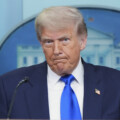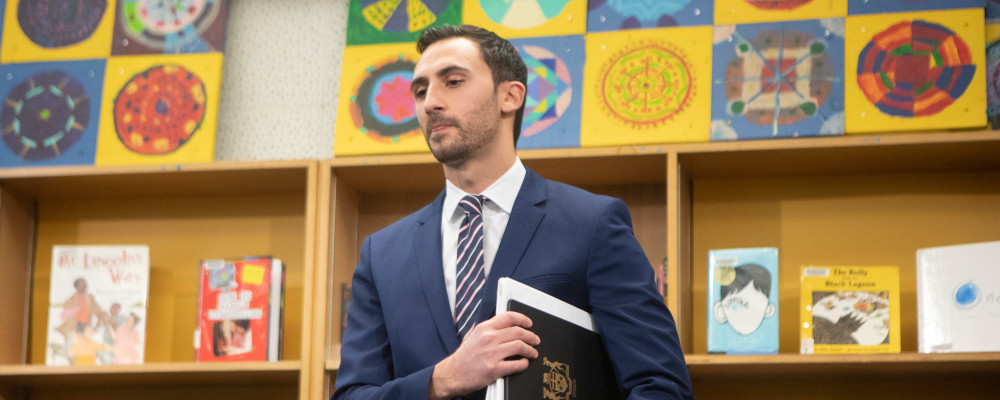Today, the CBC broke a story that showed how the Peel District School Board is culling books that fail to meet “equity-based” criteria for books in school libraries. Among the books that are thrown away, according to reporter Natasha Fatah, is Anne Frank’s diary. While they are not quite going so far as to host a bonfire to burn the books in school parking lots, the end result is pretty much the same. The board is not giving the books away, they are literally throwing them into the landfill to moulder. What an absolute abomination.
This practice is not just some random “woke” librarian on a rampage either. It is being done in response to a directive from the Ministry of Education, whose current minister is Stephen Lecce, a conservative. It comes from straight from the top.
The policy is the mirror image of the “anti-woke” book policy of the conservative governor of Florida, Ron DeSantis. A list of books removed from Florida public school libraries shows plenty of books that are terrible and that really shouldn’t be on the shelves, but also plenty that are not just okay, but genuinely endearing and in line with the tradition of living books. Why should a sweet, rhythmic, story about a Thai mom trying to quiet the animals so her baby can sleep be put out of a school library? I can’t tell you. Arguably, the Peel Board’s practice is even worse, as it simply removed any book published before 2008.
While the policy has since been countermanded by Lecce’s office, these types of policies—one aimed at removing “woke” books and another one aimed at “non-inclusive” books are, sadly, a metaphor for the state of public education these days. The words that best describe this policy are brutal and barbaric.
By this I don’t mean that school administrators are clothed in fur and looking for blood (though, judging from other goings-on in the Peel board, you can be forgiven for this assumption). They are a clear attempt to cut off students from a living tradition of reflection on the beauty and complications of human life, in favour of a simplistic, ideological vision. The dearly departed Australian poet Les Murray describes the situation better in three lines than I could in three pages:
Politics and Art
Brutal policy,
like inferior art, knows
whose fault it all is.
This is the mentality shaping both the Left’s and the Right’s vision for educating our kids. Is this what you want for your kids? It’s not what I want for mine.
This is not to say that libraries shouldn’t make choices about what to put on their shelves. Those choices are both a practical and pedagogical reality and will depend in part on the type of person you are trying to form. Perhaps it’s time to give up the pretense that forming our kids is something a system that self-articulately takes a pass on deeper questions of meaning and formation can do. Given the fact that two ostensibly “conservative” premiers have given North America two perfectly opposite, but equally brutal, policies on the literature that will shape our children’s imaginations, perhaps it’s time to find a new lens for evaluating education.
And that lens, I should add, cannot simply be the technocratic one that our governments prefer. The culling of books based on ideological differences on sex or race or what have you is nothing compared to the culling of real, living, books that have been taking place in our libraries for years in the name of value-free technological “progress.” In many libraries—both public and school—books that would have once sparked flames of imagination in life in young children have been replaced by Chromebooks and electronic learning games or other bits of metal and silicon that are, literally, planned for obsolescence rather than for posterity. The beautiful, “eye on the object” look of children reading has been replaced by catatonic faces more often found in front of slot machines in a casino.
The fact that the minister’s office issued a directive without offering clear criteria by which a book would be deemed to be “inclusive, culturally responsive, relevant, and reflective of students” (or even a definition of what it means by these extremely vague terms) is an abrogation of duty. A read of the audit reports produced by Peel indicates that this technocratic mindset is the greater concern for those of us concerned with education as something intended to shape humans, rather than technically proficient machines. It cloaks terms and actions that have significant import for the formation of children in administrative bureaucratese and is executed almost entirely by staff who are accountable to no one in particular, and certainly not Ontarian parents.

Whether it’s ridding shelves of books like the Diary of Anne Frank in Ontario under Lecce, or Brother Eagle, Sister Sky under DeSantis, policies like this are another step in the alienation of children from the complexities of history and humanity. Even if this all is, as my friend Michael Demoor suggests, simply a case of bureaucratic stupidity brought on by the hugeness of the school boards (a view that is plausible, but which doesn’t deal with the very real and clearly articulated ideological nature of Ontario’s common school system, nor its increased centralization over the last few decades), it’s a stretch to say that this is a healthy way the system should be working. Overreach and bluntness of this sort are, as they say, a feature, not a bug, of systems where education is controlled by a bureaucratic state and massive, largely unaccountable, school boards.
Perhaps this might give all of us—regardless of which colour you vote for in a given election—some pause, and a desire for something better.
A month or so ago I was corresponding with the ever-so-gifted Mary Harrington about her recent book (reviewed here in The Hub) and mentioned that I appreciated how many of the concerns she raised in the book fit into an old-school “left-wing” model of politics. Her reply was enlightening. She said, “I don’t have a problem with being recognised as a leftist in some respects; it’s true, and besides I’m not sure the terms really apply anymore, as the split these days is more human vs posthuman.”
This, I think, is precisely where we need to be on education. Another word for brutal is inhumane. Both the Left and the Right are acting like barbarians and pushing a vision of education that is destroying our shared past and the reflections of human beings trying to make sense of the world. It has to stop. It’s time for a more humane, human-scale, vision of education. But to achieve that, humanists—of all political persuasions—will need to unite.
Recommended for You

The Notebook by Theo Argitis: Mark Carney’s first major tests

The Weekly Wrap: Trudeau left Canada in terrible fiscal shape—and now Carney’s on clean-up duty

Ben Woodfinden: Lament for an ‘elbows up’ nation

‘Another round of trying to pull capital from Canada’: The Roundtable on Trump’s latest tariff salvo



